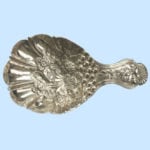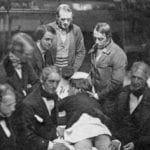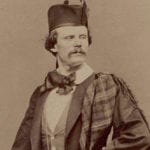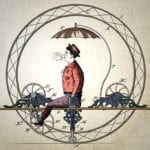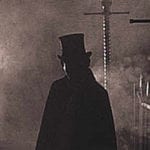 Crime
Crime  Crime
Crime  Technology
Technology 10 Hilariously Over-Engineered Solutions to Simple Problems
 Miscellaneous
Miscellaneous 10 Ironic News Stories Straight out of an Alanis Morissette Song
 Politics
Politics 10 Lesser-Known Far-Right Groups of the 21st Century
 History
History Ten Revealing Facts about Daily Domestic Life in the Old West
 Weird Stuff
Weird Stuff 10 Everyday Products Surprisingly Made by Inmates
 Movies and TV
Movies and TV 10 Actors Dragged out of Retirement for One Key Role
 Creepy
Creepy 10 Lesser-Known Shapeshifter Legends from Around the World
 Animals
Animals 10 Amazing Animal Tales from the Ancient World
 Gaming
Gaming 10 Game Characters Everyone Hated Playing
 Crime
Crime 10 Terrifying Serial Killers from Centuries Ago
 Technology
Technology 10 Hilariously Over-Engineered Solutions to Simple Problems
 Miscellaneous
Miscellaneous 10 Ironic News Stories Straight out of an Alanis Morissette Song
Who's Behind Listverse?

Jamie Frater
Head Editor
Jamie founded Listverse due to an insatiable desire to share fascinating, obscure, and bizarre facts. He has been a guest speaker on numerous national radio and television stations and is a five time published author.
More About Us Politics
Politics 10 Lesser-Known Far-Right Groups of the 21st Century
 History
History Ten Revealing Facts about Daily Domestic Life in the Old West
 Weird Stuff
Weird Stuff 10 Everyday Products Surprisingly Made by Inmates
 Movies and TV
Movies and TV 10 Actors Dragged out of Retirement for One Key Role
 Creepy
Creepy 10 Lesser-Known Shapeshifter Legends from Around the World
 Animals
Animals 10 Amazing Animal Tales from the Ancient World
 Gaming
Gaming 10 Game Characters Everyone Hated Playing
10 Bizarre Entertainments Of Victorian London
From break dancing to planking to guerrilla gardening, the modern city street offers us a variety of wacky ways to amuse ourselves. But if modern pastimes seem off the wall, you should hear about those available on the streets of Victorian London.
At a time when poverty was rife and safety laws almost nonexistent, Victorian street entertainers had to go to desperate lengths for their art. The tales of many of these performers would have been lost if not for the investigative journalist Henry Mayhew. In his London Labour and the London Poor, Mayhew went out into the city to interview a range of fascinating working-class characters.
10 Breathing Poison

One of the most daring characters was a fire-eater known as “The Salamander.” His act included a number of stunts that would earn Cirque du Soleil a visit from OSHA.
These stunts included lighting a plate of sulfur on fire, inhaling the smoke, and then eating the sulfur. Although The Salamander said that it had an “acid, nasty, sour taste,” the ingestion of elemental sulfur is actually quite safe. But inhaling sulfur fumes—not so much.
Burning sulfur produces sulfur dioxide gas. It’s a toxic chemical that can cause burning, choking, lung spasms, and even long-term lung damage—not to mention asphyxiation.[1]
The Salamander’s repertoire also included eating sealing wax. “It has a very pleasant taste, and I always prefer the red,” he explained. He also rode a death slide wearing a cradle of lit fireworks.
9 Holding Explosives As They Go Off

The most dangerous of all The Salamander’s feats was exploding a pile of gunpowder in his bare hands. First, he would strip to the waist. Next, his assistant would pour a train of gunpowder down the crook of his neck and along each arm to a pile kept in the hand. Then the assistant lit the pile in the crook, so that the fire traveled down each arm to the hands for an explosive finale.[2]
“I’ve been pretty lucky with this trick,” The Salamander claimed, “For it’s only been when the powder’s got under my bracelets, and then it hurts me.” Nevertheless, the trick was reserved only for special occasions because it could burn The Salamander’s hair or destroy his thumb or a limb.
Even if everything went smoothly, it still sounds painful. The Salamander explained, “I’m obliged to hold the hand up, for if it hangs down it hurts awful. It looks like a scurvy, and as the new skin forms, the old one falls off.”
8 Killing Rats With Your Teeth
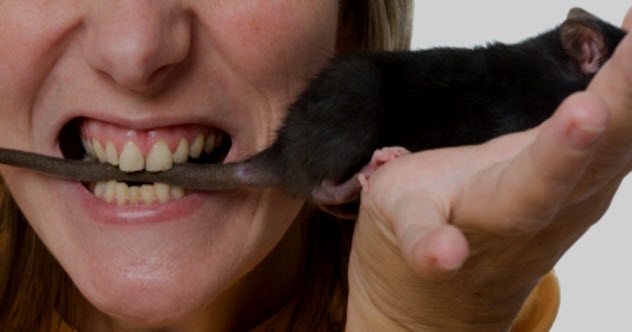
Rat-killing matches were a regular feature at one pub visited by Mayhew. After a large pit was put up, dozens of rats were released into it. When an agreed quantity was reached—for instance, 50—a dog was set loose in the ring.
The resulting fight was one-sided, with bets made on how quickly Fido could snap the necks of all the rats. Apparently, one bloodthirsty pup named Billy annihilated 500 rats in just over five minutes.
Although rat-killing matches might seem barbaric by modern standards, they were a way for ratcatchers to test the dogs on which they depended for their livelihoods. A decent rat killer could fetch a premium. Famous individuals such as Billy were even used as studs, much like a thoroughbred racehorse.
Dogs were not the only ones to get in on the action. Our friend The Salamander also had his day in the ring. With his hands tied behind his back, the race was on to kill 24 rats using only his teeth. “The rats lay in a cluster, and then I picked them off where I wanted ’em, and bit ‘em between the shoulders,” he said.[3]
Incredibly, The Salamander was able to munch his way through the rodents four minutes faster than the dog he was competing against. Apparently, he did it because he was desperate for money.
7 Puppet Murder Sprees
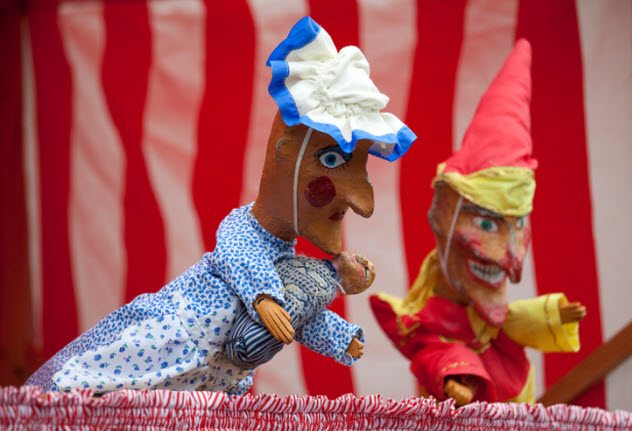
Watching a belligerent sausage addict in a jester’s hat murder his own family was a popular form of children’s entertainment in Victorian England. For the unfamiliar, Punch and Judy is a puppet show featuring a disturbed antihero called Mr. Punch. Shows continue to this day in some parts of the country. But while some might balk at the Tom and Jerry-esque violence today, modern performances have nothing on the carnage of their Victorian predecessors.
In Mayhew’s account of one performance, Mr. Punch embarks on a crime spree that puts the Manson family to shame. While he is merrily assaulting his way through London society, Punch’s other offenses include murdering his wife, throwing his baby out a window, resisting arrest, hanging the man sent to execute him, and attempting to fake his own death. All this havoc is enough to attract the attention of the Devil himself, who comes in person to take Punch’s soul and is promptly beaten to death.
This might sound more like Spawn’s backstory than that of Sesame Street, but the performer was keen to reassure Mayhew that Mr. Punch was a decent fella: “He’s a chap as won’t stand much nonsense from other people, because his morals are true, just, right, and sound; although he does kill his wife and baby.”[4]
6 Building Effigies Of The Clergy
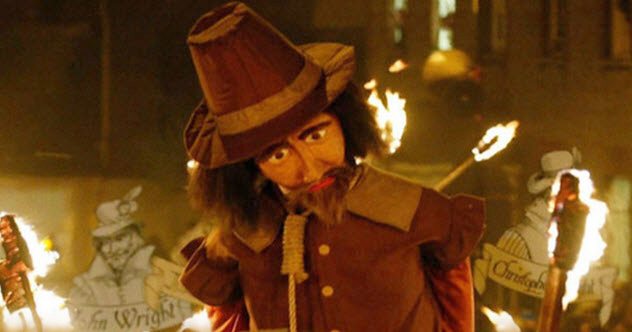
Another English tradition that survives to this day is the burning of “Guys” on November 5, which is “Bonfire Night.” Originally, straw effigies of Guy Fawkes were burned.
The image of Fawkes as a jolly folk hero is recent and can be traced to Alan Moore’s V for Vendetta. The historical Fawkes was less agreeable.[5] In essence, he was a religious terrorist bomber.
Intrepid street urchins found a way to capitalize on Guy Fawkes’s infamy. An effigy was assembled, often using trousers, boots, rosettes, and a paper cape. Rather than being burned, these “Guys” were paraded through the streets like convicts while their creators collected small coins from bystanders.
Soon, the “Guys” were also lampooning other unpopular figures, with giant floats gaining popularity. In 1856, these included the Pope and Nicholas Wiseman, the new archbishop of Westminster. These were led through the streets on carts to cries of “No Popery!”
Another elaborate float featured Tsar Nicholas of Russia lying at the feet of Florence Nightingale and two soldiers. “The figures were built up of enormous proportions, the red hat of the cardinal [Wiseman] having a brim as large as a loo-table, and his scarlet cape being as long as a tent,” noted Mayhew.
Not surprisingly, this intolerance went over poorly with Catholics. One boy interviewed by Mayhew reported running battles in the streets with London’s Irish contingent.
5 Robbing Infants
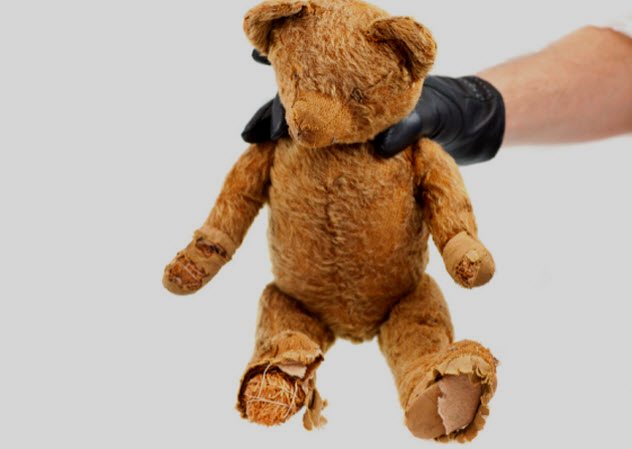
A London circus was home to a variety of clowns and comic performers. Silly Billy was a slapstick role requiring adult male actors to dress up in frilly pinafores and makeup and pretend to be young boys.
This was as creepy as it sounds. According to Mayhew’s interviewee: “A good Silly has to imitate all the ways of a little boy. When I have been going to a fair, I have many a time stopped for hours watching boys at play, learning their various games, and getting their sayings.”[6]
To mimic boys properly, a Silly was required to get up to some mischief of his own. Apparently, this included stealing lots of toys from children.
If the role of Silly Billy seems disturbing, the way audiences showed their appreciation was just as bad. Mayhew was told that women would stick pins into a Silly Billy like he was a pincushion. Sometimes, this would cause the men’s thighs to bleed.
4 Taking Sledgehammers To The Chest
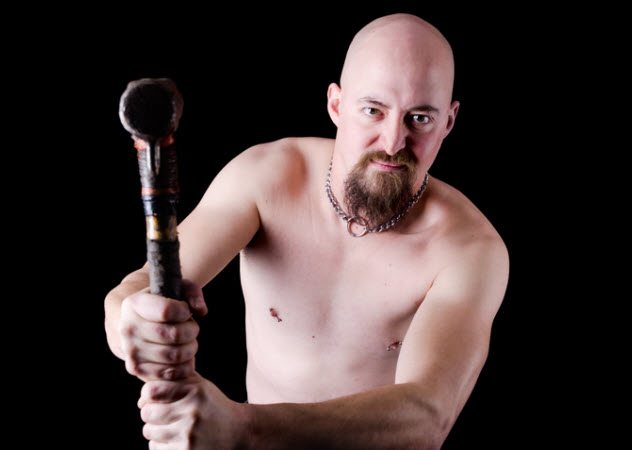
One of the people interviewed by Mayhew gave his profession as “strongman,” which in this case meant “lying on the floor with a stone on your chest and letting people smash it with a sledgehammer.” In general, they used flagstones about 2.5 centimeters (1 in) thick, but the stones could be larger.[7]
During one performance as “Signor C.,” the strongman recalled balancing on his chest a stone of 200–250 kilograms (450–550 lb). The stone was smashed into little pieces but only after it was hit six times by a 13-kilogram (28 lb) sledgehammer.
3 Picking Up A Live Horse
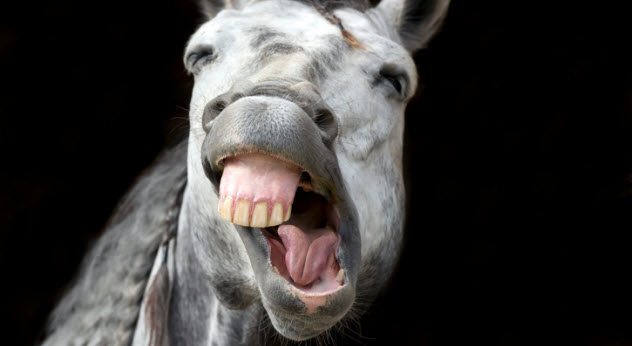
The strongman’s talents went beyond being hit with wrecking equipment. In one performance, he decided to try his hand at lifting a horse off the ground before a live theater audience. This went about as well as you would expect.
Suspended by his ankles above the stage, the strongman planned to lift the horse with sheets tied around the animal’s belly. He had just managed to get the horse off the ground when the bandage covering its eyes fell off.
The sight of the crowd below sent the horse into a panic. It flailed and kicked its legs. “I couldn’t manage him at all while he was kicking. He got his two hind legs over the orchestra and knocked all the float-lights out,” recounted the strongman.[8]
You might think that the sight of a crazed horse rocking overhead like a pendulum might have alarmed showgoers but apparently not. They kept yelling for the show to go on.
Amazingly, the strongman got the animal under control again. But he seemed to regret the whole affair, even wondering how he ever came up with the idea of lifting a horse in the first place.
2 Acrobat Face-Offs
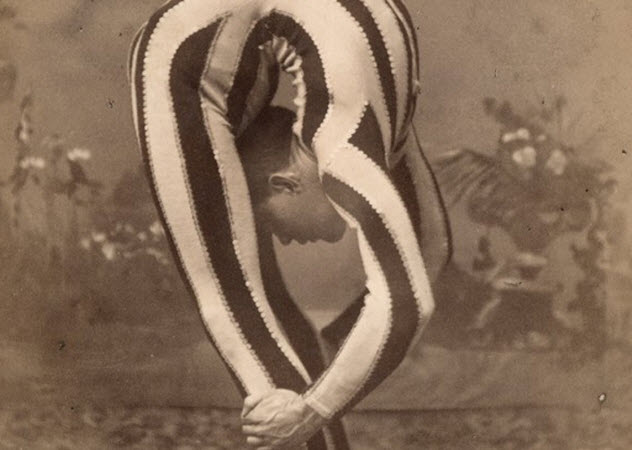
Victorian acrobatics shows featured many of the stunts we see today, such as balancing on poles and contortion. One memorable character greeted Mayhew by bending over backward until he touched his heels with his head. Then he wandered around the room on his hands.
The training required for this work could be cruel and often started in childhood. One acrobat remembered how his father would take his legs, twist them in their sockets, and pull them straight up by his side. This process was called cricking. The child’s feet were pulled up high enough to knock against his head. It was agonizing.
Still, competition could be intense out on the street. One performer (whose act included lying on his back and juggling his juvenile brothers with his feet) told the story of a Run-DMC–style face-off between two rival troupes of acrobats. They competed to outdo each other in front of a crowd.
This ended with the police telling each troupe to pick one side of town—and stick to it.[9]
1 Reproduction Murder Scenes And Memorabilia
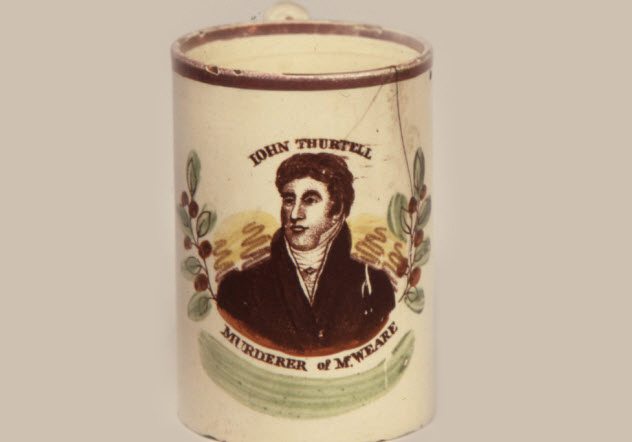
You might be getting the impression that Victorian street entertainment could be pretty bloodthirsty. In fact, many trends have their corollaries today. Although there was no Forensic Files or CSI back then, Victorians interested in sleuthing could conduct their own crime scene investigations by buying tiny earthenware figures of famous murder sites.[10]
The scenes of grisly murders were so popular that they became tourist attractions in their own right. For those who could not visit the site itself, another option was to buy murder memorabilia celebrating the crime. This included nicely decorated commemorative mugs bearing the killer’s face.
One murder at the infamous “Red Barn” was such a hit that boards from the barn itself were torn down to be sold. Trinkets of various kinds were available at the stalls of traveling traders or at seaside resorts and other holiday locations.
Michael is a former high school English teacher and lifelong lover of history. He has lived in six different countries and is always looking to collect more!
Read about more strange happenings in Victorian England on Top 10 Creepy Aspects of Victorian Life and 10 Wildly Eccentric Characters From Victorian England.
